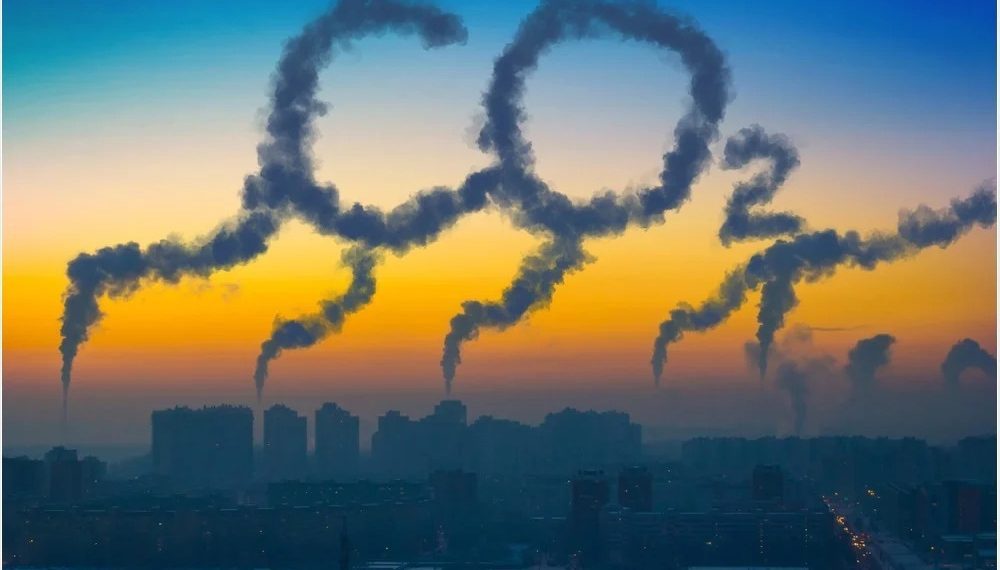CLAIM: A Twitter post on Sept. 13 claims that Africa is not emitting enough carbon dioxide (CO2) for the issue of climate change to be much of an issue here.
The tweep states that Africa accounts for roughly 3.8 percent of CO2 emission and that the continent was not even emitting enough.
As a result of this, he said he did not expect any candidate serious about the development of Nigeria to fall into the green energy trap.
Africa is not emitting enough CO2 for the issue of Climate change to be much of an issue here. Africa accounts for roughly 3.8% of CO2 emission. We are not even emitting enough. I don’t expect any candidate serious about the development of Nigeria to fall into d green energy trap
— DEMAGOGUE PhD.💘senior advocat (@von_Bismack) September 13, 2022
The post as of Oct 23 has garnered more than 200 retweets, 444 likes, and many comments.
“Africa is not emitting enough CO2 for the issue of Climate change to be much of an issue here. Africa accounts for roughly 3.8% of CO2 emissions. We are not even emitting enough. I don’t expect any candidate serious about the development of Nigeria to fall into d green energy trap,” read the tweet.
VERIFICATION: Climate change reflects the variations in the average daily weather conditions such as temperature, humidity, rainfall, and sunshine of a location over an extended period.
The weather conditions, evidently, threaten economic growth in sectors dependent on climatic conditions in Africa, including Nigeria.
Economic sectors such as agriculture, fishery, and forestry are more predisposed to the adverse effects of climate change.
For instance in Nigeria, the climate has been irregular over the years, alternating between periods of extremely dry or rainy seasons.
Climate change in Nigeria has led to seasons of drought and excess flood, which affected agricultural activities and caused a loss of shelter.
As of Oct. 2022, the National Emergency Management Agency revealed floods had displaced approximately close to 2 million Nigerians.
Meanwhile, besides natural hazards like volcanic eruptions that contribute to climate change, scientists have now discovered that certain human activities are also responsible.
Environmental scientists associate climate change effects with the depletion of the ozone layer in the atmosphere. The ozone layer prevents the heat from the sun from reaching the earth at high intensity.
The ozone layer is depleted when certain gases are released into the atmosphere by human and natural factors. These gases are; carbon monoxide, Sulphur dioxide, chlorofluorocarbon, and similar.
When these greenhouse gases contribute to global warming, where the heat from the sun is trapped on the earth’s surface. This gradually leads to excess heat depending on the depletion level and quantity of the gases emitted over time.
So it is globally established that emission of greenhouse gases – carbon dioxide from vehicles and industrial emissions, arising from industrial activities and equipment that produce greenhouse gases are among the causes of climate change.
In the last two decades, Africa truly contributes the lowest carbon dioxide emissions in the world. Statista said, Africa accounts for the smallest share of global greenhouse gas emissions, at just between 3.4 to 3.8 percent, which is in sharp contrast to what CDP Africa Report captured for China, 23 percent; the United States, 19; and 13 percent in the European Union.
CDP means Carbon Disclosure Project, an international nonprofit organization based in the United Kingdom, Germany, and the United States, helping companies and cities disclose their environmental impact.
Notwithstanding its low emission rate, Africa according to the CADP report is particularly vulnerable to climate change.
African Development Bank (AfDB) Group takes it further that Africa is the most vulnerable continent to climate change impacts under all climate scenarios above 1.5 degrees Celsius.
“Despite having contributed the least to global warming and having the lowest emissions, Africa faces exponential collateral damage, posing systemic risks to its economies, infrastructure investments, water and food systems, public health, agriculture, and livelihoods, threatening to undo its modest development gains and slip into higher levels of extreme poverty,” said AfDB.
The group cited various floodings and economic losses due to drought, farm loss, and damaged infrastructure in Africa as a result of climate change as enough evidence to prove the vulnerability of the region.
CONCLUSION: The claim that Africa is not emitting enough CO2 to cause Climate change is misleading and partly FALSE. Though the region emits the lowest percentage of global greenhouse gases, it is more vulnerable to the risks of the global weather condition phenomenon.
This fact-check was produced by BONews Service with support from Code for Africa’s PesaCheck, International Fact-Checking Network, and African Fact Checking Alliance network.

